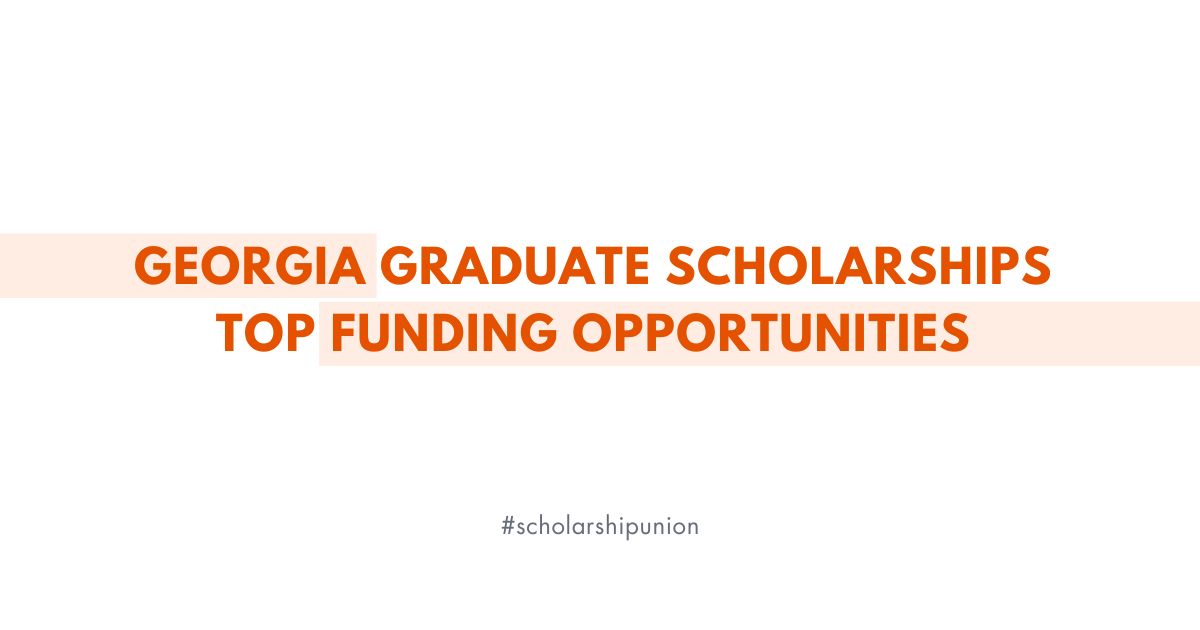Understanding the common reasons for scholarship rejections is crucial for students who rely on these opportunities as a lifeline for higher education. Did you know that thousands of scholarship applications are rejected every year due to simple, avoidable mistakes? Scholarships are highly competitive, and even minor errors—such as missing deadlines, submitting incomplete documents, or failing to meet eligibility requirements—can lead to disqualification. By identifying and addressing these pitfalls, you can significantly improve your chances of success and ensure your application stands out from the competition.
This article aims to shed light on the top Common Reasons for Scholarship Rejections and, more importantly, how you can avoid these mistakes. By following the practical tips and strategies outlined here, you’ll not only increase your chances of success but also ensure your application stands out in a crowded field. Let’s dive in and ensure your hard work doesn’t go to waste!
10 Common Reasons for Scholarship Rejections
1. Incomplete Applications
One of the most common reasons for scholarship rejections is submitting incomplete applications. Missing fields, unchecked boxes, or failing to attach required documents like transcripts and recommendation letters can disqualify you instantly.
Example: Forgetting to attach a required recommendation letter when applying for a graduate scholarship.
Solution:
- Create a Checklist: Before starting your application, list all required documents and fields to complete.
- Double-Check Before Submission: Allocate time to review your application thoroughly and ensure every section is complete.
2. Missing Deadlines of Common Reasons for Scholarship Rejections
Scholarship deadlines are non-negotiable. Submitting even a minute past the cutoff time can result in automatic rejection. Misunderstanding time zones for international scholarships or leaving submissions until the last minute are common issues.
Example: Missing the deadline for an international scholarship due to time zone confusion.
Solution:
- Mark Deadlines: Use tools like Google Calendar or Trello to track deadlines and set multiple reminders.
- Submit Early: Aim to complete and submit your application at least one day before the deadline to account for unforeseen technical difficulties.
3. Not Meeting Eligibility Criteria
Scholarship providers set specific eligibility criteria to narrow their applicant pool. Applying without meeting these criteria wastes time and guarantees rejection.
Example: Applying for a STEM-specific scholarship with a humanities degree.
Solution:
- Research Thoroughly: Carefully read the eligibility requirements before applying.
- Apply Strategically: Focus your efforts on scholarships that align with your qualifications, background, and goals.
4. Weak Personal Statement or Essay of Common Reasons for Scholarship Rejections
A generic or poorly written essay is a red flag for scholarship committees. Personal statements that lack focus or fail to connect with the scholarship’s mission often lead to rejection.
Example: Submitting the same essay for multiple applications without tailoring it to each opportunity.
Solution:
- Tailor Your Essay: Research the organization offering the scholarship and align your essay with their values and goals.
- Showcase Your Unique Story: Highlight specific achievements, challenges you’ve overcome, and your aspirations.
5. Failure to Follow Instructions
Ignoring application instructions—such as exceeding word limits, submitting files in the wrong format, or skipping mandatory sections—signals carelessness to reviewers.
Example: Submitting a PDF file when the instructions specify Word format.
Solution:
- Carefully Review Instructions: Read the application guidelines multiple times to ensure compliance.
- Use a Checklist: Track every detail, including word counts, file formats, and submission methods.
6. Low Academic Performance of Common Reasons for Scholarship Rejections
While many scholarships prioritize academic excellence, some consider holistic criteria. Submitting an application with grades below the required GPA often results in rejection.
Example: Applying for a scholarship requires a 3.5 GPA with a 2.8 GPA.
Solution:
- Target Holistic Scholarships: Look for opportunities that value extracurricular activities, leadership roles, or community service.
- Highlight Strengths: Emphasize your unique contributions and achievements beyond academics.
7. Generic Recommendation Letters
Recommendation letters that lack personalization or specificity about your achievements can weaken your application. Scholarship committees value letters that provide a clear, detailed endorsement.
Example: Using a generic template that doesn’t highlight your individual skills or contributions.
Solution:
- Choose Thoughtful Referees: Select individuals who know you well and can provide specific examples of your abilities.
- Provide Context: Share information about the scholarship and your goals with your referees to help them write a stronger letter.
8. Poorly Prepared Documents of Common Reasons for Scholarship Rejections
Unprofessional resumes, poorly scanned documents, or files with unhelpful names make a negative impression. Clear, well-prepared documents are essential for demonstrating professionalism.
Example: Uploading a blurry scan of a transcript or naming your file “resume_final123.pdf.”
Solution:
- Use Professional Tools: Platforms like Canva or Google Docs can help create polished resumes.
- Ensure Clarity: Scan documents properly and save them with clear, concise file names (e.g., “John_Doe_Resume.pdf”).
- Check also: How to Create a Perfect EuroPass CV: A Comprehensive Guide for Students and Job Seekers
9. Application Fraud
Providing false information, such as inflated grades or fabricated achievements, not only leads to rejection but can also tarnish your reputation permanently.
Example: Claiming to be a club president when you were just a member.
Solution:
- Be Honest: Focus on your genuine accomplishments, no matter how small.
- Emphasize Authenticity: Scholarship committees value integrity and honesty.
10. Lack of Differentiation for Common Reasons for Scholarship Rejections
Submitting a generic application that doesn’t stand out from the competition is a missed opportunity. Scholarship committees are looking for candidates who bring unique perspectives and qualities.
Example: Writing an essay that focuses solely on generic academic goals without personal anecdotes or insights.
Solution:
- Highlight Your Individuality: Share personal stories, unique hobbies, or impactful challenges you’ve overcome.
- Align with Values: Research the scholarship provider’s mission and reflect it in your application.
How to Avoid Common Reasons for Scholarship Rejections
Avoiding scholarship rejections starts with proactive planning and attention to detail. Here’s how you can ensure your application is error-free:
- Plan Ahead: Begin early to avoid last-minute stress. This gives you time to gather documents, refine essays, and address unforeseen issues.
- Stay Organized: Use a master spreadsheet to track deadlines, requirements, and submission statuses for multiple scholarships.
- Seek Feedback: Share your application with mentors, teachers, or friends for constructive feedback. Their insights can help refine your submission.
- Proofread Thoroughly: Use tools like Grammarly to check for typos, grammar mistakes, and formatting issues. This ensures your application looks professional.
- Practice Time Management: Dedicate specific days to focus solely on scholarships. A consistent schedule helps you stay on track and maintain quality.
Tools and Resources of Common Reasons for Scholarship Rejections
Using the right tools can streamline your application process:
- Apps for Organization: Google Calendar and Trello help you track deadlines and tasks.
- Writing Tools: Grammarly ensures error-free essays, while the Hemingway App enhances clarity and readability.
- Scholarship Platforms: Websites like ScholarshipUnion, Studyportals, and Fastweb are excellent resources for finding opportunities.
Conclusion
Submitting a polished application increases your chances of success. By planning ahead, staying organized, and leveraging tools, you can avoid common Reasons for Scholarship Rejections. Ready to take your scholarship applications to the next level? Explore more tips on ScholarshipUnion and subscribe to our newsletter for updates and insights!
⚠️ Disclaimer
Scholarship Union shares publicly available scholarship opportunities for informational purposes only. We are not affiliated with or endorsed by any listed institution unless clearly stated.
Listings may come from public sources or user submissions. We do not guarantee their accuracy, completeness, or availability.
To report issues or request updates, please contact us here.
Discover more from Scholarship Union
Subscribe to get the latest posts sent to your email.









